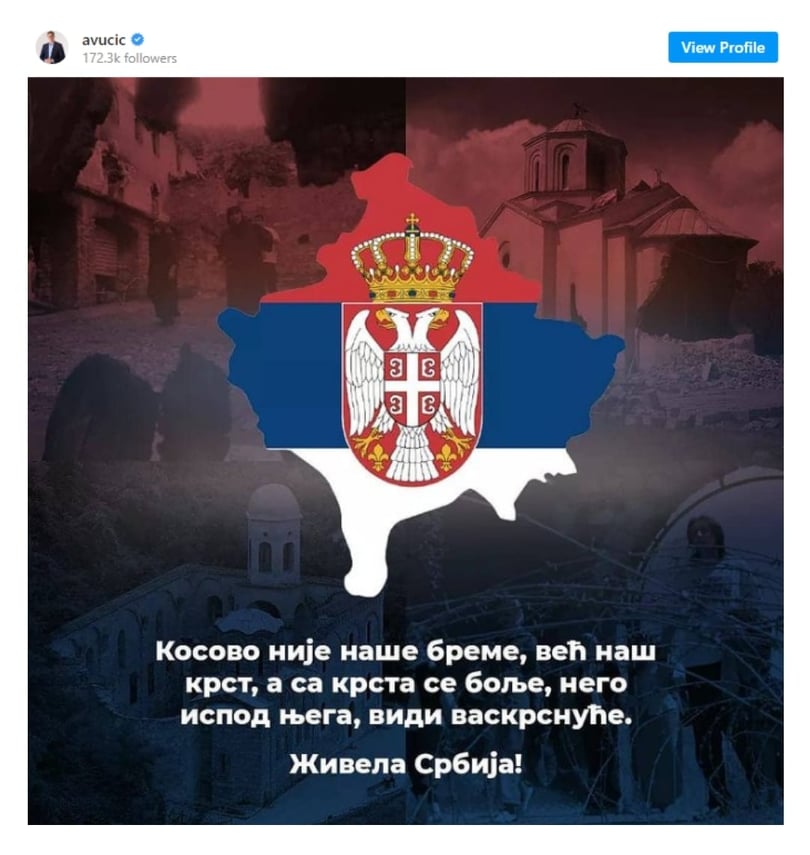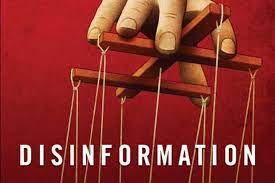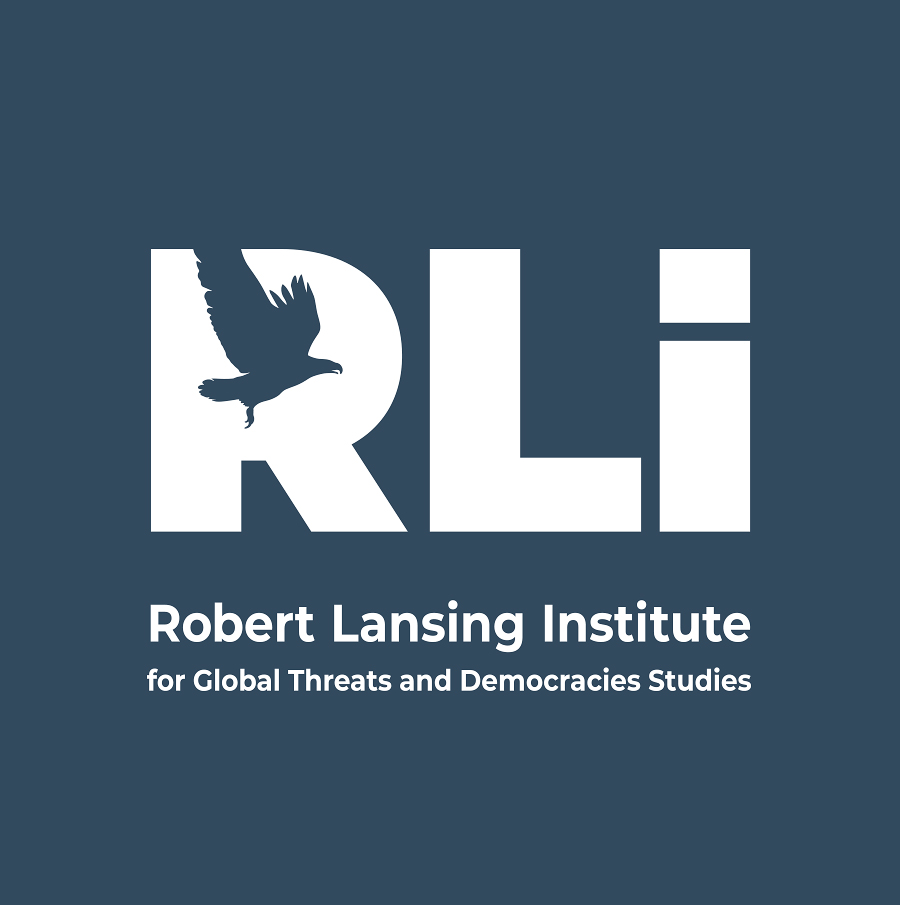Kosovo is a key to regional stability in the Balkans. This has been proved as the end of bloody dismantling of Yugoslavia ceased with the end of war in Kosovo and two other conflicts within Serbia, Sandjak and Vojvodina, remained unsolved. Russia, in attempt to use Kosovo as a threat to the region through Serbia, seeks to retain security issues in the region and by that also challenge NATO and EU in their doorstep.
When NATO began its 1999 air campaign in Kosovo without U.N. Security Council approval, Russians perceived this as part of ‘NATO’s drive for unilateral security in Europe’ (Blank 2000). The Russian Federation feared that this military campaign signaled U.S. and European domination in the international system, but also breached the norm of sovereignty in international relations. Tensions between NATO and the Russian Federation started to rise, and the impact is still long term, affecting Kosovo’s foreign relations.
The extent of Russian influence in Balkans is both hard power and soft power. In Serbia, Russia provides defense options including air power and military bases whereas in other countries in the region, Russian influence is mainly through disinformation, propaganda and fake news. Russian attempt in Kosovo is dual. In Kosovo, to present Russia as a better option than the west, and in International arena, to present Kosovo as a dysfunctional and high-risk state. A subline of Russian disinformation is that Kosovo is a dangerous place for Serbs, historical monuments and orthodox heritage being destroyed by Muslims.
Kosovo in the past has never had inter-religious conflicts between its inhabitants, even during the war between Serbia and Kosovo in 1998-1999, Serbian Orthodox church has not been attacked by the Kosovo Liberation Army, on the contrary they have been preserved according to a long tradition of Albanians that looked after these churches and monasteries from the time before Islam in the Balkans.
Recently, a campaign in the Russian online media has started reporting that Serbian Orthodox Churches are subject to burglary in Kosovo. While these thefts were not in the 24-hour reports by the Kosovo Police last week, disinformation by Russian media for the attack on the Serbian Orthodox Churches is based on the fake news reporting by online media in Serbia about the alleged theft of a church in the village of Upper Gushterica of the municipality of Gracanica. In the Russian media, it was reported about the Church of the Holy Week, in fact in the same village there is no church with such a name. The church of this village is called the Church of Saint Lazarus and there have been no such incidents in it.
Disinformation of public opinion by Russia and Serbia is coming at a time when there is an institutional gap in Kosovo, and a good opportunity to incite violence and hate, similar to the events of civil disobedience in March 2004. The events of March 2004, where a dozen was killed, led to Serbian families leaving Kosovo due to violence. Additionally, some Serbian Orthodox Churches were attacked and burned. For this, many in Kosovo deeply believe that Russian and Serbian intelligence was involved in inciting violence and initiating riots that led to such acts. The burned Churches and Monasteries were reconstructed by the Kosovo budget, but the political consequences are still part of major suffer in Kosovo’s history. The March events are thought to have been orchestrated by Russian agents in collaboration with Serbs. This is due to the fact that Kosovo and its leadership, together with KFOR, were protecting the Serb minority from any possible incident to prevent such an escalation and that Kosovo was doing a good job on the road to declaring its Independence. It had demilitarized and succeeded in reintegrating the KLA into Kosovo (unarmed). Kosovo Protection Corps had also integrated many KLA members into civil society in accordance with the terms of UNSC Resolution 1244.
Developments in March 2004 led international countries to turn their eyes to Kosovo, and this was also discussed at the UN Security Council, with UN Secretary-General Kofi Annan tasking Norwegian diplomat Kai Eide to draft a report on the situation in Kosovo. The situation of March 2004 was used by Serbia years ago when Kosovo applied for membership in UNESCO, presenting Kosovo as an unsafe country, the reason was the burning of cultural and religious monuments in Kosovo during March 2004. Vucic, Dacic and other senior Serbian state officials, citing the unrest, try to present Kosovo as a difficult place for Serbs to live.
Serbian Orthodox Church has always been deeply involved in the issue of Kosovo and supported not only Milosevic but is interlinked with Vucic as well. Today, the President of Serbia, Aleksandar Vucic, linked the religious issue with Kosovo again, in a post on social media in an attempt to incite violence similar to that of March 2004. He described the fake news “incident” of alleged church burglary as a massacre that took place in the eyes of the international community. He attached to the post the map of Kosovo covered with the Serbian flag, among which he writes that “Kosovo is not our burden, but our cross”.

Such activities of Russian agents are observed in Kosovo from time to time. An attempted riot broke out in January 2020 when Gracanica Serbs were protesting in support of the Serbian Orthodox Church in Montenegro. Among the Serb protesters were three Russians, one of them a member of the Russian intelligence service, whose identity was not made public, but who had been identified by security structures in Kosovo.
At that time, a campaign was planned under the pretext of defending the Orthodox Church in Prizren and increasing the activity at the time when a meeting of the Bishop of Prizren with the diplomatic missions in Kosovo was held and tendencies were to create unrest during this meeting. The Russian agent had entered Kosovo through illegal routes from Montenegro, he possessed forged documents as an employee of a foreign organization in Kosovo that grant diplomatic immunity, which prevented the arrest and deportation of the Russian agent.

Read also: Serbia’s war against Kosovo is asymmetric

Read also: Russian influence in the Western Balkans
The Russian position over Kosovo hasn’t changed at all, even after many agreements with Serbia have been reached. This shows that Russian policy towards Kosovo is not only to support Serbia but to (mis)use Serbia for its own great power ambitions in international relations. The Russian position seeks to continue blocking any decision in the United Nations Security Council (UNSC), and not only to block Kosovo as entity but to demonstrate its veto power against the other permanent members of the UNSC. In a tweet, the Spokesperson of Russian Ministry of Foreign Affairs today also condemned the opening of Kosovo’s Embassy in Jerusalem following establishment of diplomatic relations with Israel, saying that the decision is in discord with the UN resolution 1244 of 1999. These reactions come also after it was announced that Kosovo Security Force will participate in the multinational forces exercise organized by the US Army in the simulation of operation Defender Europe 2021 together with 27 nations and some 28 thousand troops.




